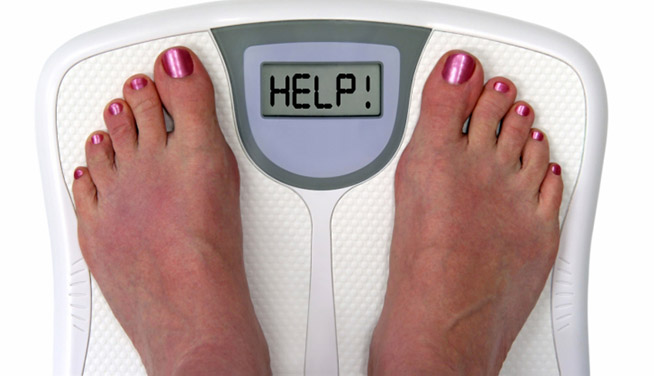When you consume calories beyond what your body needs, you will end up storing that extra energy in the form of triglycerides within fat droplets of individual fat cells. Carbohydrates are easiest to make into fat. Assuming that blood sugar levels are adequate, the carbohydrates will then be stored as glycogen. Muscles and the liver use glycogen for energy. But muscle does not have the necessary enzymes to synthesize all carbohydrates into glycogen; therefore the liver converts the majority of carbohydrates into liver glycogen. Since the liver is responsible for supplying energy to the entire body, once its stores are full, it is responsible for signaling the body to convert the extra carbohydrates to fatty acids to make triglycerides and store it in the fat cells. This is how carbohydrates are easily converted to fat.

When attempting to lose weight, you increase energy output and lower energy input such that the body dips into its energy storage within fat cells to keep itself going. When breaking down fat, the triglyceride is taken out of storage from the fat cell and broken down and used as energy by the body. As a fat cell liberates more and more triglycerides during times of negative caloric balance, it becomes smaller and smaller, but never disappears.
The whole process can be summarized in the following chemical equation:
Triglyceride (C55H104O6) + 78O2→ 55CO2 + 52H2O + energy
So yes, when broken down, fat is used to create energy. I also wanted to show you that 1 triglyceride molecule (with the help of oxygen) is converted to a bunch of carbon dioxide (CO2) and water (H2O). So if we do the math as they did in this scientific experiment, when somebody loses 10 kg of fat (triglyceride), 8.4 kg is exhaled as CO2 while the remaining 1.6 kg is lost as water in urine, feces, sweat, tears and other bodily fluids.
So, when fat is lost, it is mostly exhaled as carbon dioxide (84%), with the remainder (16%) being excreted as water.
Interestingly, this also means that the lungs are the primary excretory organ for fat. Breathing from the diaphragm is important and breathing exercises have helped patients in my office decrease their emotional and physical stress and also boost their immune system. We can see now it is also important when one is trying to lose weight. There are many articles on breathing exercises to lose weight and only now do I see the validity. Try one and if you see results please let me know so I can pass it on to others!
No comments:
Post a Comment